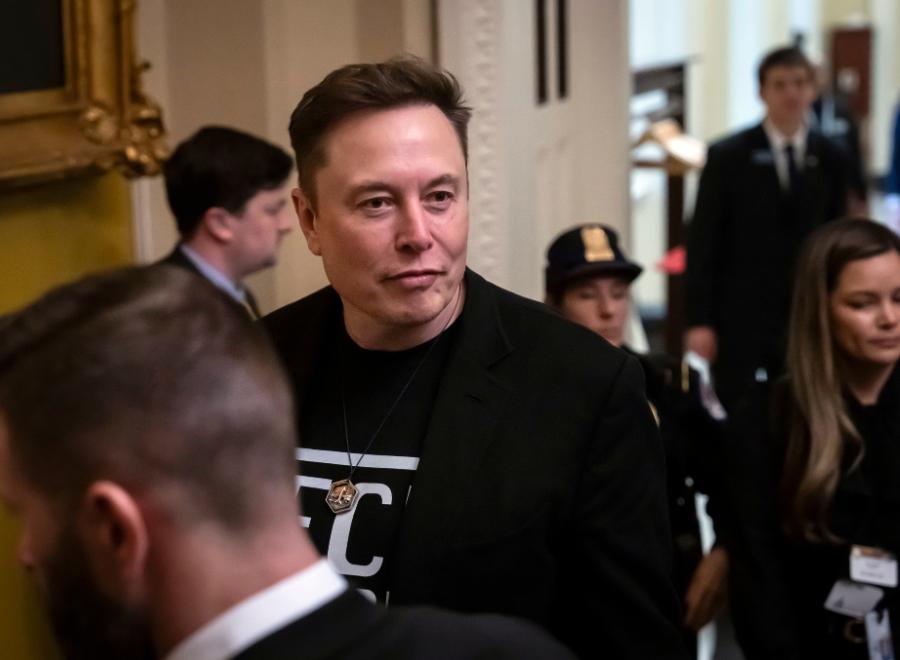Elon Musk thinks empathy is killing civilization. In a recent appearance on “The Joe Rogan Experience,” the world’s top right-leaning podcast, Musk made a surprising proclamation: empathy, he claims, is the “fundamental weakness of Western civilization,” pushing us toward “civilizational suicide.”
As a Canadian social psychologist who researches empathy scientifically, I disagree sharply with his assessment. Simply put, Musk is wrong.
Musk’s claim relies on two key assumptions: that empathy is higher in ‘western civilization’ than other societies and that high empathy harms civilization.
Western civilization is neither uniquely empathetic nor especially high in empathy. A study by psychologist William Chopik and colleagues comparing empathy across 63 countries bears this out. Differences across countries were small, but the top five countries in total empathy were Ecuador, Saudi Arabia, Peru, Denmark and the United Arab Emirates. When comparing regions, the Middle East, Central America, Southeast Asia and East Asia all scored higher on average in total empathy than Western nations. In sum, if empathy is a weakness, it is not unique to western civilization.
Want to join the Broadview community and make sure you don’t miss a story? Sign up for one of our newsletters.
However, this second assumption — that empathy is detrimental to civilization — is also wrong. From an evolutionary perspective, empathy was foundational to the formation of society and research suggests it remains critical to its functioning today. Empathy drives volunteer work and helping behaviours. It fosters connection, builds trust and reduces conflict. As social theorist and author Jeremy Rifkin argues in The Empathic Civilization, broadening empathy is the driving force that has moved us from tribal bonds to religious ties, to nation states and could eventually move us to global co-operation.
At the same time, empathy is not perfect. As the late neuroscientist Emile Bruneau showed, we’re more likely to empathize with in-group members compared to those considered “others,” a tendency that biases moral decision making, drives polarization and can even motivate retaliation.
Furthermore, as Musk and Rogan point out, empathy can be “weaponized” and “used as a tool” to manipulate others. Politicians across the spectrum have long exploited this tactic.
For example, when U.S. President Donald Trump highlights the stories of victims of migrant crime (who rightfully deserve our empathy) to argue there is a migrant crime wave despite the fact that research suggests immigrants are less likely to commit crimes than U.S.-born citizens, this too is an example of weaponized empathy. It is thus critical to understand when selective empathy is being used to manipulate us and take time to consider all individuals potentially affected by our actions.
While imperfect, empathy is essential to civilization’s advancement, in particular empathizing across religious, political and cultural divides. When the Bible says “love thy neighbour” it does not add “but only if they share your political views.”
More on Broadview:
- The Christian Reformed Church is deeply divided over Trump
- Whose Christianity does Trump want to protect?
- ‘Our inclusivity is a huge draw’: Behind one congregation’s success
Empathizing across party lines can help reduce polarization. Behavioural scientist Luiza Santos and colleagues have shown that people who believe empathizing across partisan divides is a strength rather than a weakness experience decreased hostility toward their political opponents and become more effective at persuading others in political discussions.
The way forward isn’t to abandon empathy but to develop a more comprehensive, thoughtful version that considers the full human impact of our decisions. It is the total absence of empathy — not its presence — that truly threatens civilization. Instead of eliminating empathy, cultivating thoughtful empathy alongside critical thinking may be our best path toward addressing the complex challenges of our interconnected world.
***
Greg Depow is a Canadian psychologist and postdoctoral fellow at the Rady School of Management, University of California San Diego.
Thanks for reading!
Did you know Broadview is the only media organization in Canada dedicated to covering progressive Christian news and views?
We are also a registered charity and rely on subscriptions and tax-deductible donations to keep our trustworthy, independent and award-winning journalism alive.
Please help us continue to share stories that open minds, inspire meaningful action and foster a world of compassion. Don’t wait. We can’t do it without you.
Here are some ways you can support us:
Thank you so very much for your generous support! Together, we can make a difference
Jocelyn Bell, Editor/Publisher, CEO and Trisha Elliott, Executive Director

Comments
Gordon Garlough says:
The empathy discussion is clear, revealing the separation between folk who see two solitudes. Success is for me or success for us (community).
Mary Trott says:
ln his interview with Joe Rogan on empathy, Elon Musk also mentioned "suicidal empathy" I have trouble picturing this except as firemen and other first responders who risk their lives for the benefit of those they serve...but I don't think that is what he meant. What are your thoughts on this term?